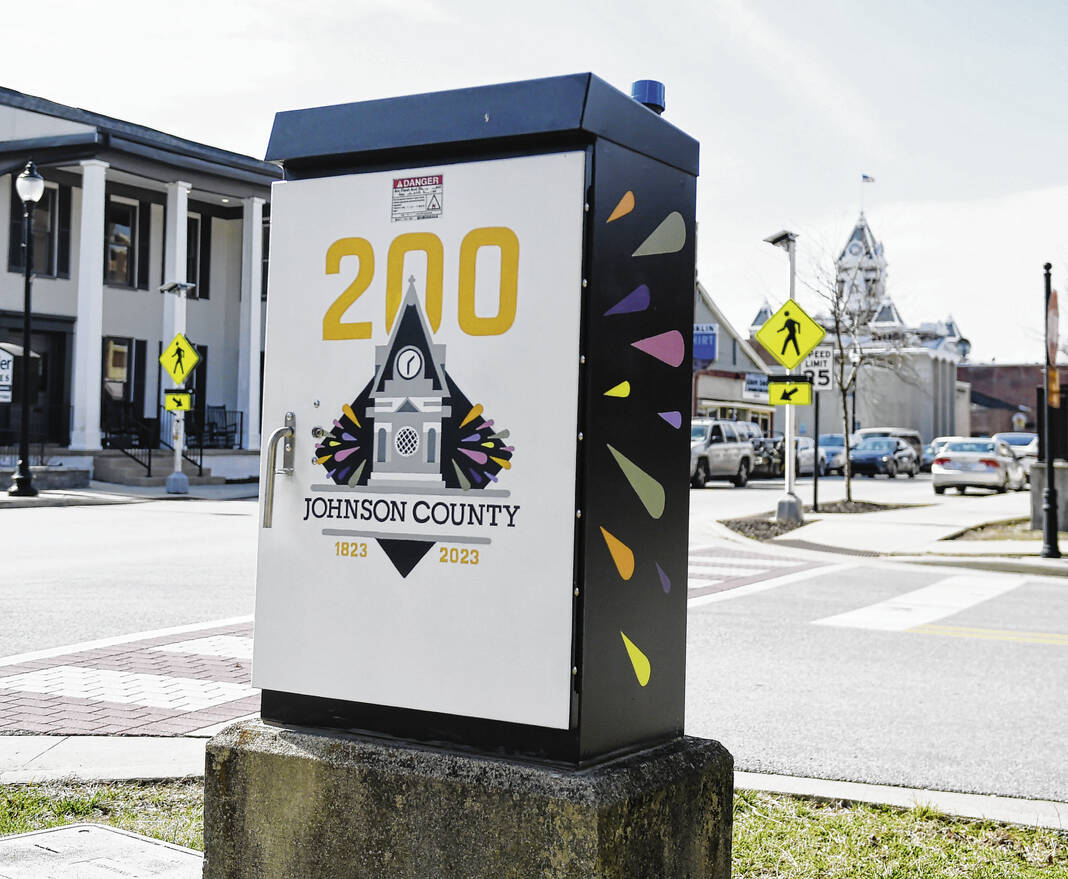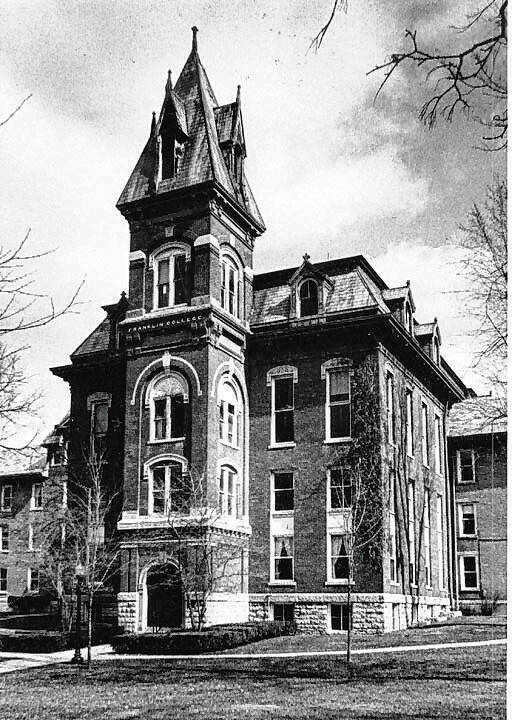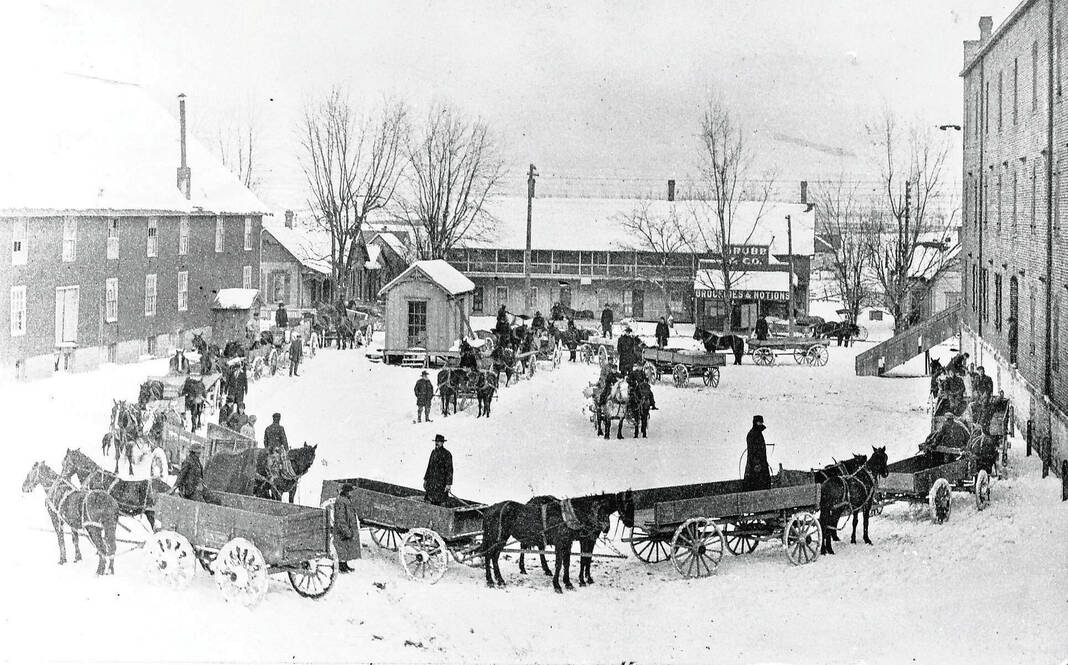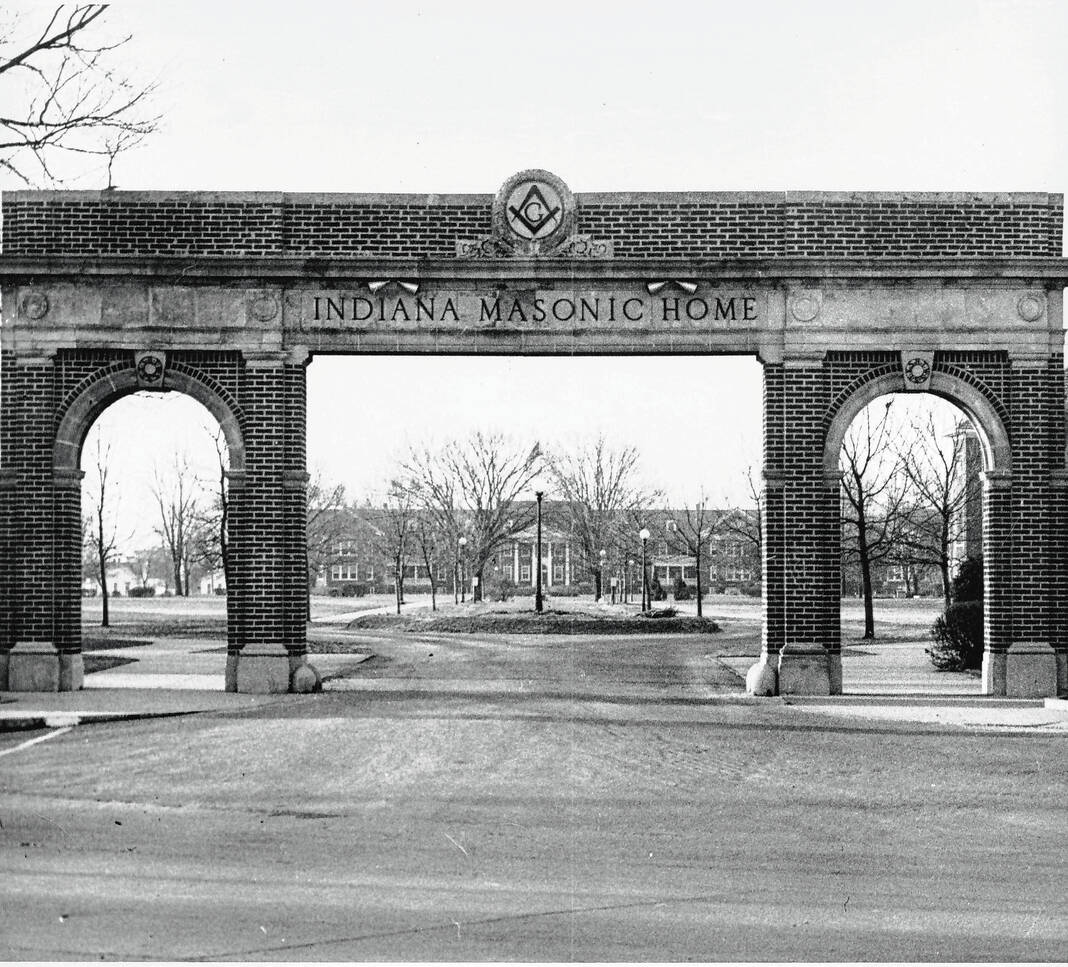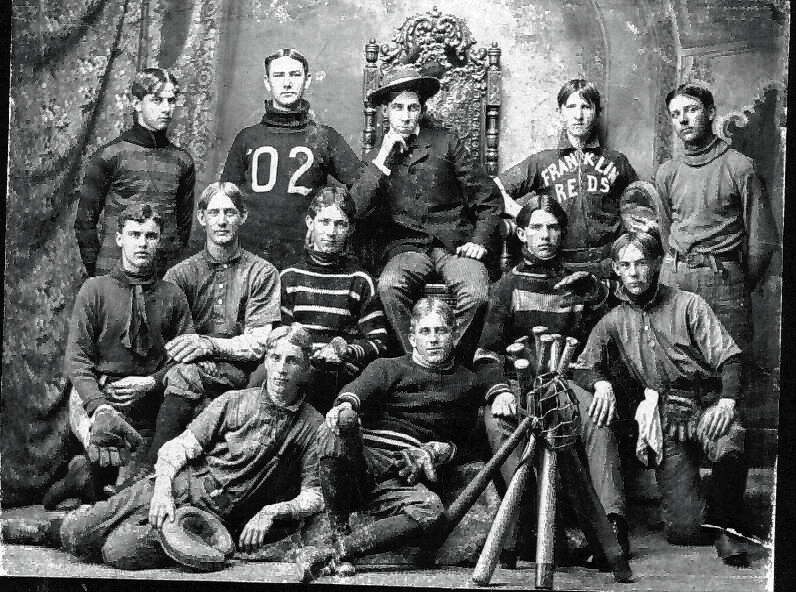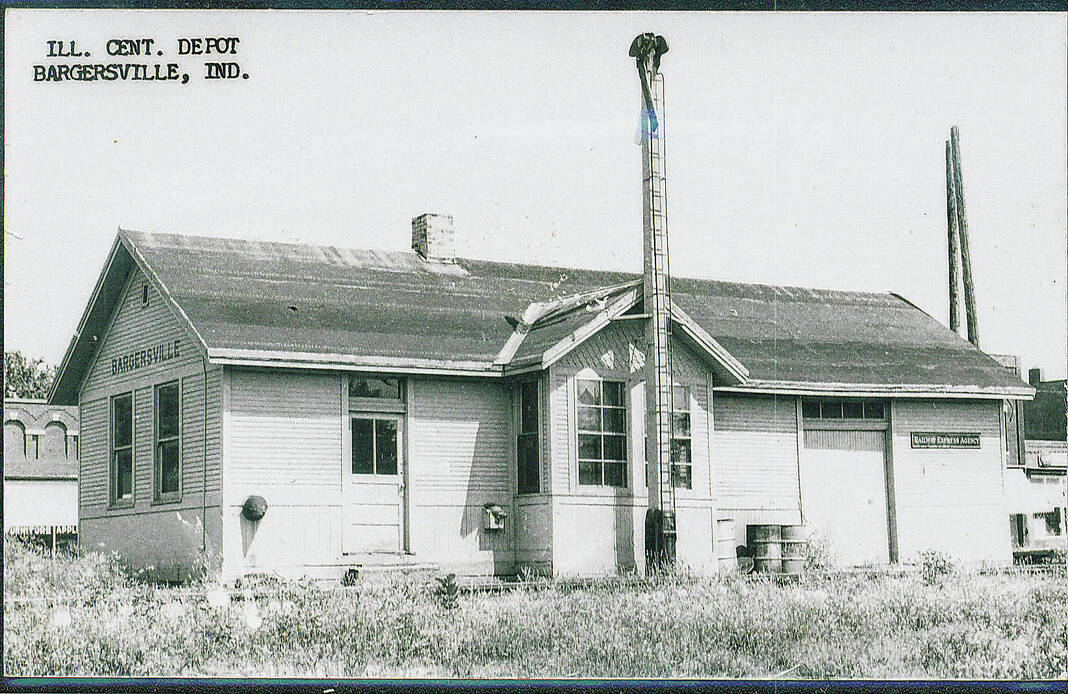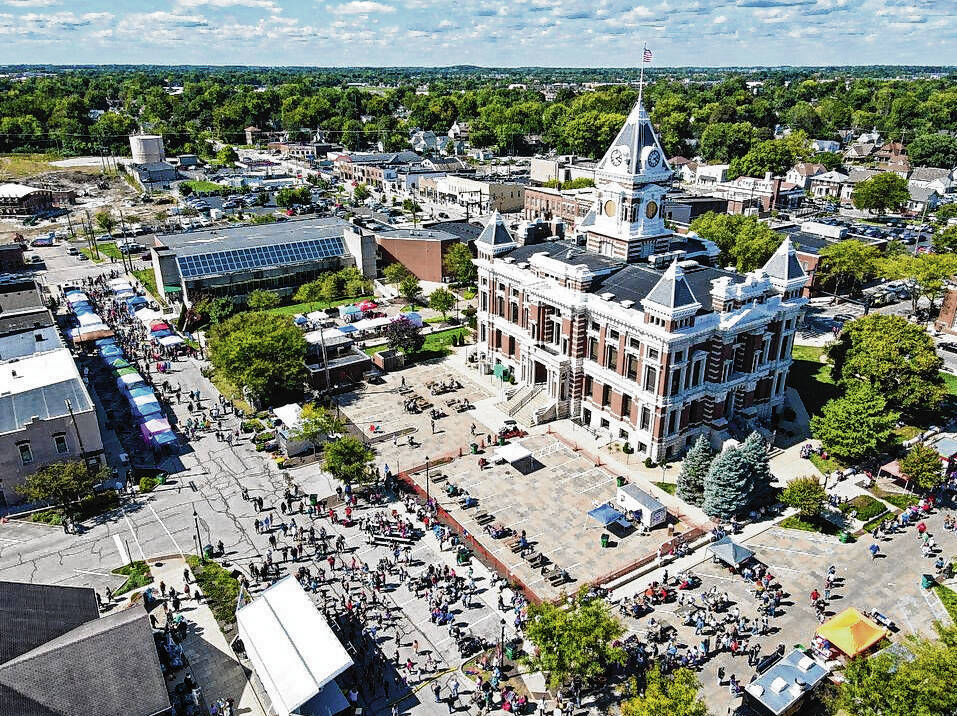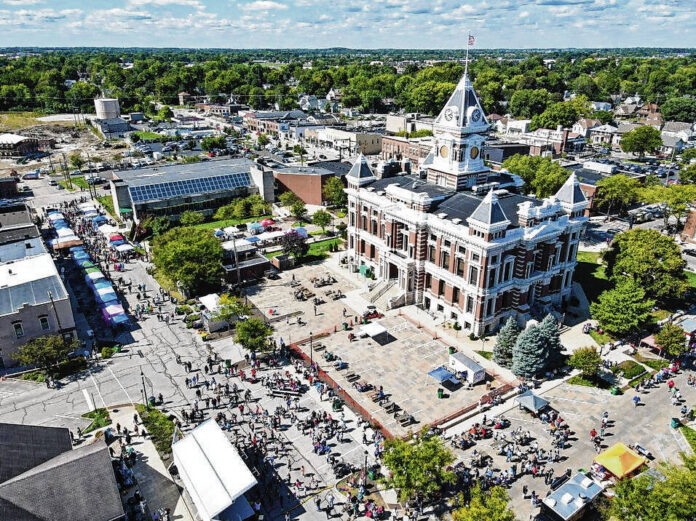
The Johnson County Bicentennial celebration takes place throughout the year, with a variety of special events planned. The bicentennial kicks off March 8 with an event at the Historic Artcraft Theatre.
SUBMITTED PHOTO
On a March day in 1823, Johnson County was born in a pair of log homes.
Though Indiana’s governor had approved the formation of the county months before, March 8, 1823 was the day the county’s first officials would be elected. Votes were cast in two separate log homes, and before the end of the day, the first county commissioners, a recorder and a few judges were selected.
From a simple act of democracy in a wild, rugged country to a dynamic metropolitan county, much has changed in Johnson County. And 200 years to the day from the first election, local residents have a chance to celebrate all the county has become over its lifespan, said David Pfeiffer, director of the Johnson County Museum of History.
“We’re recognizing that, 200 years ago, some of the first white settlers of Johnson County got together, organized and said, ‘We’re going to be a real county,’” he said. “They laid the foundation for what the county will be. We thought this would be good to have the opening date for our bicentennial coincide with that first date for the county.”
At long last, the county’s bicentennial kicks off on Wednesday, with a community event featuring historical relics, recognition of pioneer families, a slide show of photographs from over the years and more.
Dr. Nicole Etcheson, a professor of history at Ball State University, will paint of picture of what society was like as Johnson County was coming together.
With months of events and celebrations planned for the bicentennial — in addition to coinciding with 200th-anniversary activities for Franklin and Greenwood — Wednesday’s kick-off starts an important period of reflection for local residents.
“It gives us grounded-ness as Hoosiers. It’s important to know where you came from and what your values are. That’s a very Hoosier, very Midwestern kind of thing to say,” Etcheson said.
The credit for founding the county, as well as Franklin, has historically been given to George King. King came to the area with two other men, Garrett Bergen and Simon Covert, in 1822 from Kentucky, looking to purchase land in the newly opened territory.
They found a tract located between Youngs Creek and Camp Creek, which was described as “wooded with beech, sugar tree and poplar timber,” according to “Johnson County, Indiana, History” by Bev Hollanbeck.
On Dec. 31, 1822, King petitioned the Indiana legislature to form a county. The petition was approved, and it was proposed to name the new entity Johnson County, in honor of John Johnson, one of the first Indiana Supreme Court Justices.
Gov. William Hendricks appointed John Smiley to be the county’s first sheriff, and instructed him to hold county elections on March 8, 1823.
“The date we chose (March 8) was because that was the first organizational event in county history took place,” Pfeiffer said. “The governor had already signed the paperwork creating the county, but that was it. Nothing really happened until this date in March 1823, the first time people in Johnson County gathered to vote.”
Planning for the bicentennial has been ongoing for the past two years, Pfeiffer said. A committee of local leaders have met monthly to discuss plans to recognize the county’s history, as well as examine the present and think about the future.
Scheduled events include a large celebration in conjunction with the Franklin Fall Festival, and a gala ball in November to close out the year.
The kick-off will set the stage for those events.
The bicentennial committee partnered with the Historic Artcraft Theatre to host the event. As people arrive to the theater, they’ll be greeted by a wealth of historical artifacts from over the years, from photographs to significant items related to the county’s history.
A slide show curated to encompass life in the county over the past 200 years will show on the big screen.
“It gives that sense of history as they walk in,” Pfeiffer said.
Different county officials are scheduled to say a few words as the program begins, setting the stage for Etcheson’s presentation on life in pioneer Indiana and early politics.
Etcheson, the Alexander M. Bracken Distinguished Professor of History at Ball State, specializes in the early history of the country, particularly the time period around Johnson County’s founding.
Her plan is to talk about the first election in the county, and what politics were like at that time in Indiana. Without spoiling the discussion, the proceedings were much different than what we think of today.
“The great informality of the elections at that time will be surprising, I think,” Etcheson said. “Particularly in this modern day when we’re obsessed with voter identification and if there is fraud in the elections, I think people would be surprised that in the early 1800s, you didn’t register to vote. People voted in a few different houses. Liquor played a big role in 19th century elections.”
Outside the theater, 200 luminarias will line the sidewalk — a throwback to the 150th anniversary of the county, where a big candlelight ceremony with descendants of early county pioneers. Middle Davids Artisan Candles has created a special bicentennial candle to light, as well.
“For so long, it seemed so far away. Now it’s here,” Pfeiffer said. “It’s been a lot of buildup to this, and we’ve so many great members on this bicentennial committee.”
IF YOU GO
Johnson County Bicentennial Kick-off
What: A celebration recognizing the start of the county’s 200th anniversary year
When: 6:30 p.m. March 8, doors open at 6
Where: The Historic Artcraft Theatre, 57 N. Main St., Franklin
Cost: Free and open to the public, though RSVPs are requested at historicartcrafttheatre.org/movie-and-events-schedule.


